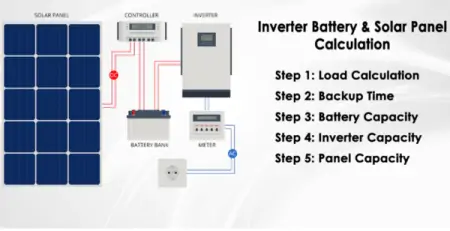Residential solar panel warranty
A residential solar panel warranty is a guarantee offered by the manufacturer or installer that covers the repair or replacement of solar panels in case of defects or malfunctions. It is a legal document that outlines the terms and conditions of the warranty coverage. Understanding the warranty terms is crucial before installing solar panels because it can affect the cost, lifespan, and maintenance of the system. A warranty can provide peace of mind to homeowners, ensuring that they are protected from unexpected expenses and loss of investment.
Types of Warranties
Manufacturer’s Warranty
Coverage period: A manufacturer’s warranty typically covers solar panels for 20 to 25 years, depending on the manufacturer. Some warranties may also offer a performance guarantee for a certain number of years.
What is covered: Manufacturer’s warranties usually cover defects in materials and workmanship, as well as damage caused by weather, fire, and other natural disasters.
What is not covered: Manufacturer’s warranties typically do not cover damage caused by improper installation, normal wear, and tear, or damage caused by the homeowner.
Installation Warranty
Coverage period: An installation warranty covers the workmanship and installation of the solar panels, typically for 1 to 2 years.
What is covered: An installation warranty typically covers any damage caused by faulty installation or workmanship, such as leaks, wiring issues, or structural damage.
What is not covered: An installation warranty typically does not cover damage caused by weather, fire, or other natural disasters, or damage caused by the homeowner.
Understanding the different types of warranties and what they cover is important for homeowners considering installing solar panels. It is important to read the warranty carefully and understand the terms and conditions before making a decision.
What to Look for in a Warranty
When considering solar panel warranties, homeowners should look for the following:
Length of coverage: The length of coverage is a crucial factor to consider when evaluating solar panel warranties. Homeowners should aim for a warranty period of at least 20 to 25 years, which is the average lifespan of solar panels.
What is covered: Homeowners should look for warranties that cover a broad range of issues, including defects in materials and workmanship, power output, and weather-related damage.
What is not covered: It is equally important to understand what is not covered by a warranty. Homeowners should look for warranties that do not exclude coverage for common issues such as damage caused by extreme weather, animals, or installation errors.
Transferability: Homeowners should also consider the transferability of the warranty, which is the ability to transfer the warranty to a new homeowner in the event of a home sale. Transferable warranties can increase the resale value of a home and provide peace of mind to potential buyers.
Common Warranty Issues
While solar panel warranties are designed to provide protection and peace of mind to homeowners, there are some common issues that can arise, including:
Misunderstandings about coverage: Homeowners may misunderstand what is covered by their solar panel warranty, leading to unexpected costs or disputes with the manufacturer or installer. This can be avoided by reading the warranty carefully and seeking clarification from the manufacturer or installer if any terms or conditions are unclear.
Difficulty getting warranty claims approved: Some homeowners may experience difficulty getting their warranty claims approved due to a lack of documentation, delayed responses from the manufacturer or installer, or disputes over the cause of the damage. To avoid this, homeowners should maintain accurate documentation of their solar panel system, including installation, maintenance, and repairs.
Issues with warranty transferability: Some warranties may not be transferable to new homeowners, which can limit the resale value of a home with solar panels. Homeowners should check the warranty transferability before selling their home and negotiate with the manufacturer or installer to ensure the warranty is transferable.
By understanding these common warranty issues, homeowners can take steps to avoid them and ensure that their solar panel system is protected for the duration of the warranty period. It is important to work with a reputable manufacturer or installer who offers comprehensive warranties and excellent customer service.
How to Maintain Your Warranty
To ensure that your solar panel warranty remains valid and effective, homeowners should take the following steps:
Regular maintenance and inspections: Regular maintenance and inspections of your solar panel system can help identify and address any issues before they become more serious. It is recommended to schedule maintenance checks at least once a year or as specified by the manufacturer.
Proper documentation: Keeping proper documentation is essential for maintaining your solar panel warranty. This includes documentation of the installation process, maintenance checks, repairs, and upgrades. Homeowners should keep a copy of all warranties and manuals related to their solar panel system.
Keeping a record of all repairs and upgrades: Homeowners should keep a record of any repairs or upgrades made to their solar panel system, including the date of service, the name of the service provider, and the details of the repair or upgrade. This information can be helpful when making a warranty claim and can also help with future maintenance and repairs.
Conclusion
In conclusion, understanding the warranties that come with residential solar panels is crucial for homeowners who want to protect their investment and ensure that their system continues to function efficiently. Homeowners should research and compare warranties before making a decision, looking for warranties that offer comprehensive coverage and are transferable.
Maintaining proper documentation and upkeep of solar panels is also essential to ensure that the warranty remains valid and effective. Regular maintenance and inspections can help identify and address any issues before they become more serious, and keeping a record of repairs and upgrades can be helpful when making a warranty claim.



